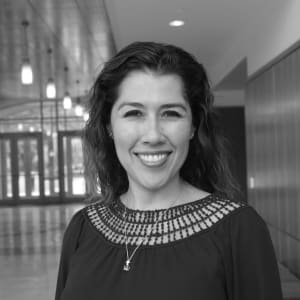Meet a Holistic Nurse

Do you know how a holistic nurse is different from a conventional nurse? You may be incorporating elements of holistic nursing into your practice and not even know.
As you consider holistic nursing as a career, you’ll want to have some of your questions answered. On this page, we feature a Q&A with a nurse with over 25 years of experience who has developed holistic programs for providers and consumers. Then, find answers to your questions about what holistic nurses do in their practice and how to become a holistic nurse.
Q&A With a Holistic Nurse

With over 25 years of nursing experience, Caroline Ortiz is an associate professor at the Pacific College of Health and Science’s holistic nursing degree program. She has developed holistic health programs for healthcare providers and the general public; participated in clinical research of complementary medicine and integrative health approaches; and presented her work locally, nationally, and internationally.
She is active with the National Association of Hispanic Nurses and the Integrative Health Project’s work in Guatemala. Ortiz currently researches the traditional medicine of Mexico and its presence in the U.S. and apprentices as a curandera (traditional healer).
Q: Why did you choose a career in nursing? Were you interested in holistic nursing specifically?
[biomedicine] the best I can do as a nurse to help patients? What else is there to support health?” The questioning came from seeing so many patients who did much medically to care for themselves, yet they often did not look or feel well. Such incongruence led me to rethink my nursing practice and explore the potential of complementary, alternative, traditional, and integrative approaches to wellness.This shift was an unexpected return to my cultural roots and experiences as a kid growing up on the Texas-Mexico border. For me, a visit to the local curandera (healer) was as normal as visiting the pediatrician. The choice of medical provider depended on whether I was with my U.S.-born mother (a nurse) or my Mexican-born grandmother. I assume both approaches had merit as here I am telling this story now as a happy, healthy person.
Q: You research curanderismo, traditional Mesoamerican healing practices from Mexico. What can you share with us about your research so far?
Traditional medicine from Mexico (TMM) is alive and growing in the U.S.
Medical pluralism, use of more than one medical system’s approaches and treatments concurrently, is happening among U.S. patients. However, patients frequently do not disclose use of TMM to medical providers, and providers are not asking patients about their use either. For those using TMM, choosing which system to access when is a process of reasoned discernment about the presenting health challenge, accessibility, efficacy of interventions and expected outcomes, and prior experiences with each system.
TMM treats health as holistic and is all about moving toward greater balance and harmony. Inner health is a balanced and dynamic relationship between the mind, body, spirit, and emotions, and external health is the individual having harmonious, interdependent relationships with their community, the natural world, and an unbound universe.
Without hierarchical structures or an oversight body for practitioners and practices, there are many regional expressions of curanderismo, yet, it maintains a fundamental core of health, healing, and well-being as holistic.
Herbs and plants are the most common traditional healing “tools” reported. They are used to treat physical and mental/emotional issues and as part of deeply spiritual healing ceremonies and rituals.
The World Health Organization has a Traditional Medicine Strategy that recommends greater integration of traditional medicine practitioners, practices, and products into national health systems for global access to high quality healthcare. While there are many highly motivated and committed people supporting the WHO efforts, movement toward integration is slow and varies widely by country.
Q: What value do holistic nursing practices provide to patient care?
Holistic nursing practices make self-awareness, self-growth, and self-care a top priority for the nurse, which tells the nurse that they are important, worthy, and capable of change for the better. This belief in self translates into a grounded confidence that is much needed when working with diverse patients in today’s dynamic and demanding healthcare system.
Also, holistic nurses view health as multidimensional (mind, body, and spirit) and many are skilled in offering complementary and integrative health approaches to patients as part of the journey in healing, even when curing may not come.
Q: While every patient and situation is unique, what might a “typical” day look like for you as a holistic nurse?
As a holistic nurse, I incorporate many practices and skills into a “typical” day. I may begin the day with a mindful practice (deep breaths, a meditation, a simple pause) and check-in, approaching it with self-compassion and gratitude. At work, I try to remind myself that each interaction with others is unique and can be challenging, so it is likely that mindful practices and check-ins are used again and multiple times throughout the day.
I also remain open to opportunities where my skills in mind/body practices might comfort someone else, such as offering breathwork or guided meditation for managing stress and anxiety, an energy-based therapy or hands-on bodywork for physical discomfort, or simply holding space with deep listening for the other person to express themselves. Matching skills and know-how to the needs of the presenting situation, even if it means only offering presence, is part of the art of nursing.
Q: What are some of the biggest challenges of your work?
The biggest challenges of my work are remembering that I am my own healer and have resources and agency to improve any situation.
Q: And the greatest rewards?
The greatest reward is sharing the moments when others recognize that they are their own healers with resources and agency to improve any situation.
Q: What advice would you give to those considering a career in holistic nursing?
Holistic nursing is a career that not only expands the professional role and skills of nurses, but it can remind you of the Divine person you have always been. So my advice would be to approach holistic nursing as a continuous, never-ending journey that is always about YOU and includes relationships with people, animals, and the natural world as teachers.
What Does a Holistic Nurse Do?
—
“Holistic nursing is a career that not only expands the professional role and skills of nurses, but it can remind you of the Divine person you have always been.” — Caroline Ortiz, Holistic Nurse
Holistic nursing practice is different from traditional nursing, as it focuses on healing the whole person. Traditional nurses concentrate on symptoms, diseases, and treatment. Holistic nurses incorporate those skills with attention to a patient’s spiritual, emotional, mental, and social well-being. In other words, holistic nurses are facilitators of healing. They create an environment where patients can comfortably reveal information that impacts their health.
Holistic nurses are also charged with caring for their own emotional, mental, social, physical, and spiritual health. The basis of the nurses’ attitude impacts patient care. Nurses who are burned out are unable to provide the healthy, supportive environment patients need to heal.
There are many skills and responsibilities that mark successful holistic nursing practice. These include:
Complementary and alternative medicine therapies can include:
How to Become a Holistic Nurse
Many nurses who choose to practice holistic nursing continue their education at a holistic healthcare school or program. After completing a master’s in nursing, many take on the family nurse practitioner role and become certified. This offers the opportunity to expand your holistic nursing career and practice greater independence. Here’s how to start as a holistic nurse.
Education
Holistic nurses are legally licensed registered nurses (RN). You will need to complete a two-year associate degree in nursing (ADN) or four-year bachelor of science in nursing degree (BSN) from an accredited program. Nursing classes include pharmacology, anatomy and physiology, mathematics, nursing concepts, and nursing leadership.
Experience
Experience in holistic nursing can begin in a nursing program near you. There are several programs that the American Holistic Nurses Credentialing Corporation endorses. If you do not attend one of these programs, you may gain holistic nursing experience by studying complementary and alternative medicine strategies to incorporate into your practice.
Licensure
Holistic nurses must maintain an active RN license in the state where they practice. You must take and pass the National Council Licensure Examination for RNs after graduation. Your state board of nursing requires this score to award a nursing license. RN requirements also depend on your state board of registered nursing.
Certification
While you may adopt holistic practices, you must be certified to be a holistic nurse. An ADN nurse may be credentialed as a holistic nurse board certified, and a BSN nurse may be credentialed as a holistic nurse baccalaureate board certified. Requirements for both degrees include graduation from a nationally accredited program, an unrestricted, current RN license, 2,000 hours or one year of full-time holistic practice in the past five years, and 48 hours of continuing education for nurses.
You may also choose to apply for and pass other optional certifications. These can include certifications in diabetes management and pain management.
How Much Do Holistic Nurses Make?
As many holistic nurses are RNs, their salaries are comparable to a registered nurse salary. The median annual salary for an RN in the U.S. is $75,330 according to the U.S. Bureau of Labor Statistics. According to ZipRecruiter, the national average annual salary for a holistic nurse practitioner is $99,620 as of October 2021.
You have some control over your annual salary. For example, you may negotiate a higher salary as a nurse with more experience, education, or certifications. This increases your desirability as an employee to the hospital or practice where you work.
You might be interested in

15 Truths About Holistic Nursing
Have you considered holistic nursing? Here are 15 truths about the practice that demonstrate the importance of integrating care.

Self-Care for Nurses
Explore the importance of self-care for nurses and ways in which they can promote physical, psychological, and social well-being.

Meet a School Nurse
School nursing is an attractive role that has a lot of independence and can impact both children and adults. Here’s how you can meet the job requirements.